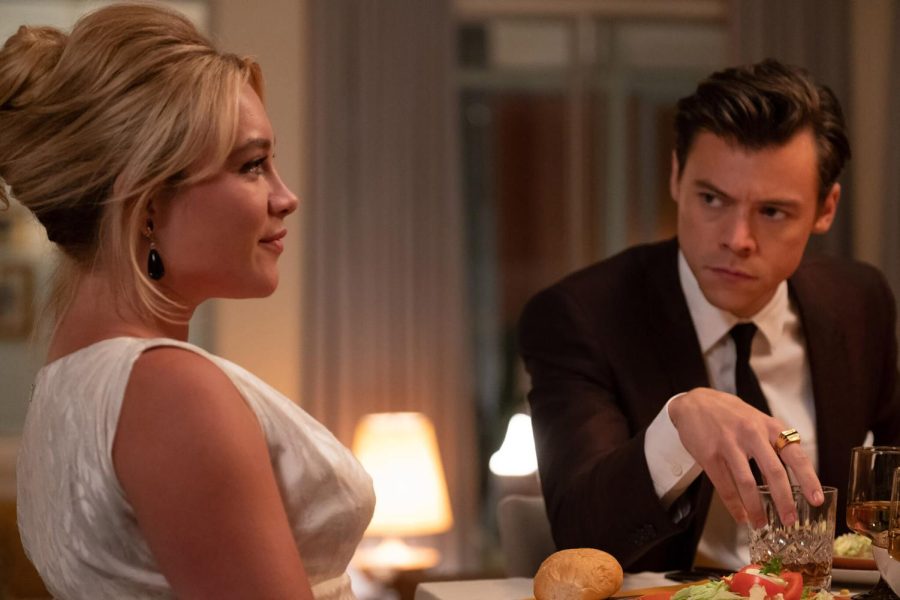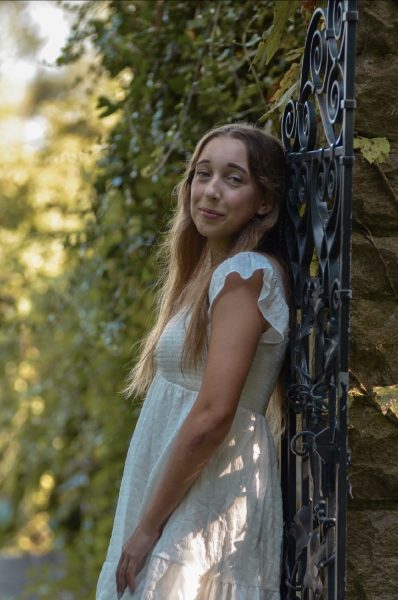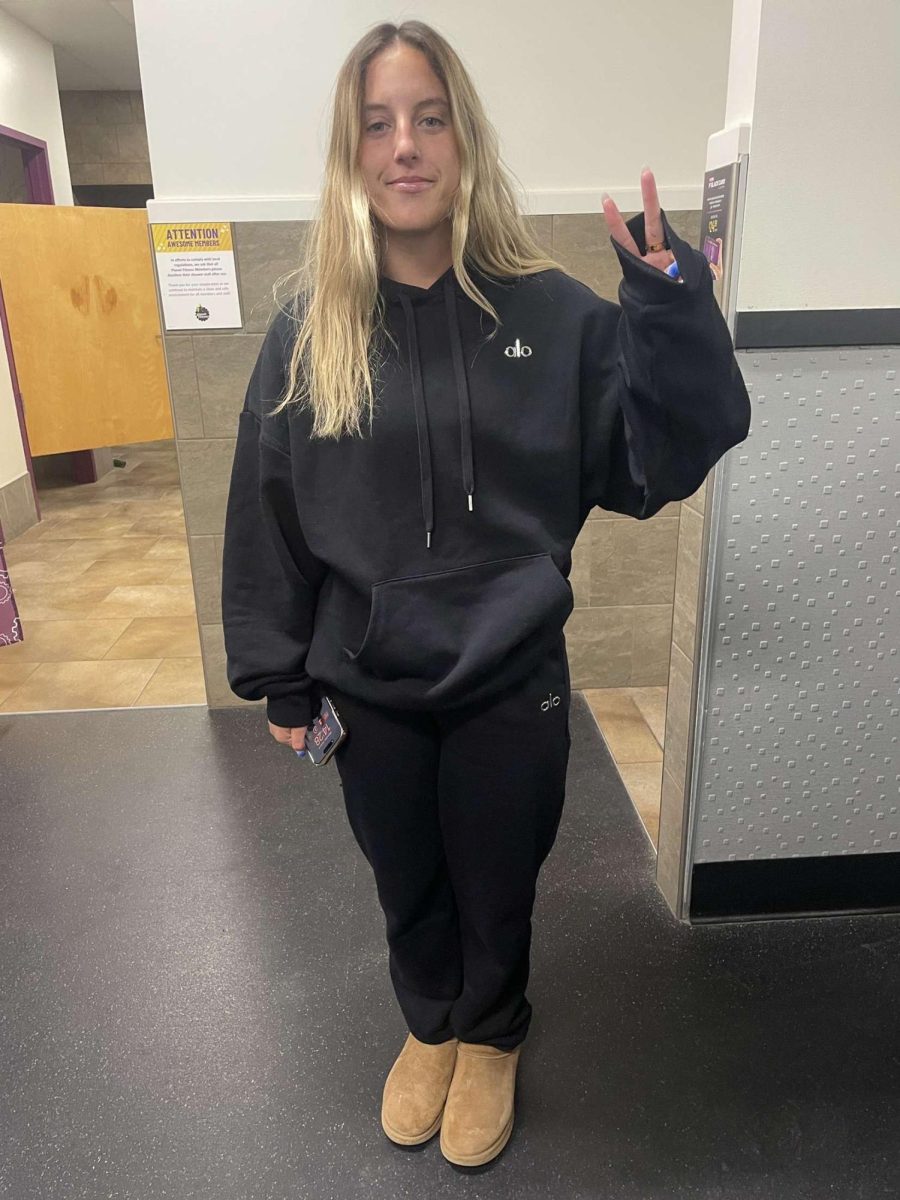REVIEW: Don’t Worry Darling by Olivia Wilde
November 9, 2022
Every piece of hair, every cocktail dress, every “clink” of the champagne glass seems to be perfect in the town of Victory. In Olivia Wilde’s retro, yet feminist movie “Don’t Worry Darling,” Jack (Harry Styles) and Alice (Florence Pugh) live in an ideal and deserted town that houses men who work on a top-secret project. Every day is the same, which is part of the town’s beauty. The men leave for work in the morning and the wives get into their daily chores: vacuuming, bathtub scrubbing, doing the dishes, then perhaps a dance class, accompanied by some day drinking. Overall, the wives of this town get to enjoy the beauty, luxury, and debauchery of their seemingly perfect paradise. However, this paradise has some off-putting attributes to it. Everything seems to be too tidy, too uniform, too perfect.
Sure, shopping all day, going to booze-soaked parties, and having a handsome husband are fun. However, the revelation of the odd feeling resulted in a shrug of disappointment. Instead of getting questions answered as the storyline progresses, more questions are conjured after finding out what was meant to be the “answer.”
Moreover, the storyline is also a familiar idea, pulled from previous works such as Pleasantville and The Stepford Wives. Like her previous films, Florence Pugh is again seen as the clear-visioned individual trying to warn others about the dangers of their sinister society. Watching everyone gaslight her into believing otherwise was sad to watch… if only they would have listened.
Due to Pugh’s beautiful talent in being able to accurately represent the character, Harry Styles’s acting is underwhelming. Although an amazing pop star, his acting alongside Pugh proved that he was not ready for the assignment. When scenes that called for emotional depth, his actions were outmatched. No matter what, one of the only good attributes of Styles’ playing this role was his appearance.
In the end, when Alice confronts Frank, the most powerful scene happens. The pace of the movie starts to pick up, making the viewer shift to the edge of their seats. But, the climax is short. Wilde rushes the ending while leaving many unanswered questions. While the movie was much better than many haters claim, many parts, if made differently, would have enhanced the message Wilde was trying to portray.








